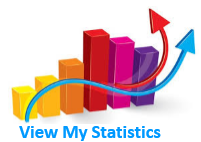Effectiveness of Electronic Muhammadiyah Monitoring Chronic Disease Application in Changing The Knowledge, Attitudes, and Behavior of People With Hypertension
DOI:
https://doi.org/10.18196/jmmr.v12i2.15Keywords:
Applications, attitudes, behavior, hypertensionAbstract
Hypertension (HT) is a serious medical condition that significantly increases the risk of heart, brain, kidney, and other organ diseases. The disease course increases along with age and a bad lifestyle. One strategy to prevent the increasing number of HT sufferers is through health promotion. In the digital era, technology is a strategic approach to controlling HT. One of Indonesia's existing health applications is the Electronic-Muhammadiyah Monitoring Chronic Disease (E-MMCD) application. However, its effectiveness has not been tested in increasing the knowledge, attitudes, and behavior of people with HT. This quasi/experimental research was conducted using consecutive purposive sampling at Husada Utama Hospital, Surabaya, from September to November 2022. The number of samples was 57 patient respondents for each group, the intervention (I) and the control (C) group. The data was carried out using the pre-and post-test questionnaire after 1 month intervention period using the E-MMCD application. In group C, health promotion using applications was not given. Knowledge in groups C and I was insignificant different. Attitudes and behavior in group C were increased with an insignificant difference, while in group I were increased with a significant difference.
References
De La Perrelle, L., Radisic, G., Cations, M., Kaambwa, B., Barbery, G., & Laver, K. (2020). Costs and economic evaluations of quality improvement collaboratives in healthcare: a systematic review. BMC Health Services Research, 20(1), 1–10. https://doi.org/10.1186/s12913-020-4981-5
Kang, H., & Park, H.-A. (2016). A Mobile App for Hypertension Management Based on Clinical Practice Guidelines: Development and Deployment. JMIR MHealth and UHealth, 4(1), e12. https://doi.org/10.2196/mhealth.4966
Kassianos, A. P., Georgiou, G., Papaconstantinou, E. P., Detzortzi, A., & Horne, R. (2017). Smartphone Applications for Educating and Helping Non-motivating Patients Adhere to Medication That Treats Mental Health Conditions: Aims and Functioning. Frontiers in Psychology, 8, 1769. https://doi.org/10.3389/fpsyg.2017.01769
Kusnandar, V. B. (2022). Indeks literasi digital indonesia masuk kategori sedang pada 2021. Katadata: https://databoks. katadata. co. id/datapublish/2022/01/20/indeks-literasi-digital-indonesia-masuk-kategori-sedang-pada-2021.
Kusumo, M. P. (2021). Physical activity patterns in lecturers during Covid-19 pandemic: A qualitative study. Journal: JMMR (Jurnal Medicoeticolegal dan Manajemen Rumah Sakit), 10(1), 35–45. https://doi.org/10.18196/jmmr.v10i1.10829
Kusumo, M. P., Prabandari, Y. S., & Dewi, F. S. T. (2021). Measuring the Knowledge, Attitude and Practice of Patients With Diabetes Mellitus—The Design and Development Process. International Quarterly of Community Health Education, 0272684X211022173. https://doi.org/10.1177/0272684x211022173
Kusumo, M. P., Hendrartini, J., Sufro, Z. M., & Dewi, F. S. T. D. (2020). Theater Performing Arts (TPA): Community Empowerment to Improve Blood Glucose Control Behavior in Yogyakarta. International Journal of Endocrinology and Metabolism, 18(4). https://doi.org/10.5812/ijem.103106
Lauber, K., Ralston, R., Mialon, M., Carriedo, A., & Gilmore, A. B. (2020). Non-communicable disease governance in the era of the sustainable development goals: a qualitative analysis of food industry framing in WHO consultations. Globalization and Health, 16(1), 1–15. https://doi.org/10.1186/s12992-020-00611-1
Marcolino, M. S., Oliveira, J. A. Q., D’Agostino, M., Ribeiro, A. L., Alkmim, M. B. M., & Novillo-Ortiz, D. (2018). The Impact of mHealth Interventions: Systematic Review of Systematic Reviews. JMIR MHealth and UHealth, 6(1), e23. https://doi.org/10.2196/mhealth.8873
McBride, C. M., Morrissey, E. C., & Molloy, G. J. (2020). Patients’ Experiences of Using Smartphone Apps to Support Self-Management and Improve Medication Adherence in Hypertension: Qualitative Study. JMIR MHealth and UHealth, 8(10), e17470. https://doi.org/10.2196/17470
Ministry OF Health. (2018). Peraturan Menteri Kesehatan No. 44 Tahun 2018 tentang Penyelenggaraan Promosi Kesehatan Rumah Sakit. Jakarta: Ministry of Health.
Rahman, H., Ramli, R., La Patilaiya, H., Hi. Djafar, M., & Musiana, M. (2021). Promosi Kesehatan untuk Meningkatkan Peran Aktif Masyarakat dalam Pencegahan Penyakit Tidak Menular. BAKTI (Jurnal Pengabdian Kepada Masyarakat), 1(1), 1–11. https://doi.org/10.51135/baktivol1iss1pp1-11
Sharma, P., Beria, H., Gupta, P. K., Manokaran, S., & Reddy, A. M. (2019). Prevalence of hypertension and its associated risk factors. Journal of Pharmaceutical Sciences and Research, 11(6), 2161–2167.
Volpi, S. S., Biduski, D., Bellei, E. A., Tefili, D., McCleary, L., Alves, A. L. S. A., & De Marchi, A. C. B. (2021). Using a mobile health app to improve patients’ adherence to hypertension treatment: a non-randomized clinical trial. PeerJ, 9, e11491.
World Health Organization. (2021). Guideline for The Pharmacological Treatment of Hypertension in Adults: Web Annex A: Summary of Evidence. World Health Organization.
Downloads
Published
Issue
Section
License
Copyright (c) 2023 JMMR (Jurnal Medicoeticolegal dan Manajemen Rumah Sakit)

This work is licensed under a Creative Commons Attribution-NoDerivatives 4.0 International License.




